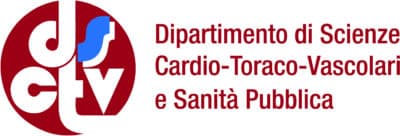
The Master in Medical and Health Anthropology prepares students for an in-depth, cultured and reflexively critical understanding of the body’s cultural representations, of health and disease dynamics, of healthcare policies and day-to-day practices in care places. This interdisciplinary program includes, in an innovative manner, the history of medicine and epidemiology in a medical anthropology and ethnography perspective. It also provides a deep understanding of the different cultural, political, social and financial perspectives on health and disease, by introducing students to the historical and anthropological research on the concepts of disease and care. The Master is relevant in the current job market, given the growing demand for experts capable of understanding the cultural and social dynamics of health, crucial to tackle the healthcare challenges in such a globalized world, through critical cultural competence and transformative ethical sensibility.
The Master in Medical and Health Anthropology provides theoretical-practical knowledge on the fundamentals of medical anthropology, and helps students develop research projects and apply the knowledge and skills acquired independently.
This advanced program explores the relation between health, disease, collective representations, and ideology, and shows how healthcare practices and beliefs vary between societies, and how cultural, social, economic and political dynamics affect health and access to treatment.
Medical anthropology examines the ways in which health and well-being are socially and culturally established, in comparative and trans-national contexts, and the ways in which culture can affect how medicine, disease and healing process are experienced in individuals and in societies; moreover, it explores how body and self, and the notion of individuals and persons are perceived.
It actively promotes a debate between anthropology, clinical practice, scientific knowledge, primary and public health in different national and global contexts, by dealing mainly (although not exclusively) with:
- Analysis of the care systems and their social-cultural variability.
- “Traditional” medicine”.
- Analysis of medicalization processes in care contexts.
The Master in Medical and Health Anthropology is addressed to:
- Graduates in humanistic and social disciplines
- Graduates in healthcare disciplines
- Healthcare or NGO professionals, healthcare policy and global health program consultants, people working in international healthcare-related contexts
- Medical anthropology and social sciences researchers and scholars
- Public healthcare professionals looking for a cultural approach in their practice
The competences acquired are relevant for:
- Academic research and research institutions
- Public and private healthcare sector
- Healthcare policy and community health program consultancy
- Support to healthcare institutions and personnel
- Preventative healthcare and maintenance
Some of the skills acquired include:
- Conducting historical-anthropological research on healthcare topics
- Understanding the interconnections between culture, society and health
- Analysing and intervening on healthcare policies with a cultural approach
- Knowledge of healthcare practices and beliefs in different societies
- Managing healthcare projects in intercultural contexts
- promoting healthcare equity through cultural understanding
- Consultancy and surveys on public healthcare perception in different national and transnational contexts
The Master in Medical and Health Anthropology is divided into the following modules:
Module 1 – History of Medicine
- Paleopathology and biological anthropology applied to medical anthropology
- History of care from prehistory to the modern age: diseases and pathologies
- The impact of Darwinism on medicine, and the impact of medicine on human evolution
- Introduction to the relationship between history of medicine and medical anthropology
Module 2 – Quantitative Approaches to Medical Anthropology
Quantitative research in medical anthropology
Data analysis and interpretation
Ethnobotany, anthropometry and quantitative approaches
Module 3 – Introduction to Medical Anthropology
Key concepts in medical anthropology and main theoretical approaches
Introduction to the main qualitative methods used in anthropology
Module 4 – Dualisms and Body Anthropology
Culture shapes the body, by affecting styles and practices. In the contemporary world, the modern body is increasingly subjected to and the object of well-being practices (shape) and body ‘improvement’ regimes, based on certain performance or aesthetic canons (diets, cosmetic, fitness, bodybuilding…). This module addresses cultural influences, with the aim of debunking, deconstructing and analysing social, political and cultural logics behind the construction of the body.
Module 5 – Diseases
Concept of disease and its social constructs
Anthropological analysis of pandemics, from Aids to Covid-19
Module 6 – Health
The disease-health dichotomy to highlight how fluid the boundary really is. How is health defined and governed? What are the policies implemented? What are the social and cultural differences and how do they affect people’s health.
Module 7 – Structural Violence
This module focuses on the different forms of violence; in particular, it analyses those forms of violence that, based on their definition in an anthropological context, are generated by the way society is organized and by its inequalities, “which translate into diseases, misery, child mortality, sexual abuse”, and in general, into all the forms of inequality in accessing healthcare.
Method 8 – Care and Ethics
Focus on the concept of care. This module focuses on active listening, on the doctor-patient relation, and on all those situations in which care relationships are involved (seniors, fragile people, new-borns, etc.). This module is a space for thought for professionals active in different sectors, and also for citizens directly and indirectly affected by fragility situations in their family and friends network. Beyond the ethic of obligation, without denying it.
The Master’s lessons will be provided online, on the Moodle platform, and on-demand, as the videos may be seen in asynchronous mode, and are accessible to students 24/7. It features on-demand lessons, as it was designed for students and professionals who wish to conciliate other activities and professions with the need to qualify or specialize themselves further. There will be frequent and easy interaction between students and teachers, through Moodle’s Forum, a place designed to exchange reflections or ask questions on the modules covered during the Master.
It lasts one year, with video lessons held between November/December 2025 and May 2026.
At the end of each module, students will be required to complete the relevant homework, in asynchronous mode, to ascertain their knowledge. Among them, the aforementioned research project or an ethnography on a topic relevant to the modules covered during the course. At the end of the year, the project will be presented by the student online, via Zoom.
The Master, activated internationally in collaboration with the Universidad Javeriana of Bogotà, Colombia, offers a high-level training opportunity thanks to a multidisciplinary faculty composed of experts from different disciplinary areas. This approach guarantees a broad and in-depth vision of the subject, allowing students to develop specialized skills and a complete understanding of the sector. Furthermore, the program encourages the comparison between different academic and professional perspectives, enriching the learning path with innovative methodologies and an international network.
The general ranking of merit for the academic year 2025/26 will be published on the Italian page of this Master according to the timing provided in the Call.
Information
FAQ
Attendance is mandatory, and in order to obtain the title, 70% of the online lessons must be completed.
1. Exemption for students with disabilities
There is no registration fee for candidates with a certified disability and a disability between 66% and 100%, or for those in possession of a certification pursuant to Law no. 104. These students will only have to pay the pre-registration fee, insurance and stamp duty.
2. PA110
Public administration employees who enroll in the Master’s degree benefit from a discount of 330 euros on the second installment of the registration fee.
3. Registration for University staff
The pre-registration fee for the technical-administrative staff of the University is equal to 20% of the expected quota. In the event that the technical-administrative staff possesses the admission requirements for the Course, once the course has been completed, they will be able to obtain the relevant Diploma or Certificate. If they do not possess the admission requirements, they may be admitted as auditors and obtain a certificate of participation.
The final Project Work will consist in a paper exploring one of the topics covered during the Master. During the Project Work (generally from the end of the Master until the beginning of September), students will be flanked by a tutor for the entire process. At the end of the course, students will present their Project Work before an on-line committee on the Zoom platform.
The Master admission selection is based on qualifications only. The selection method is described on the Master announcement.

